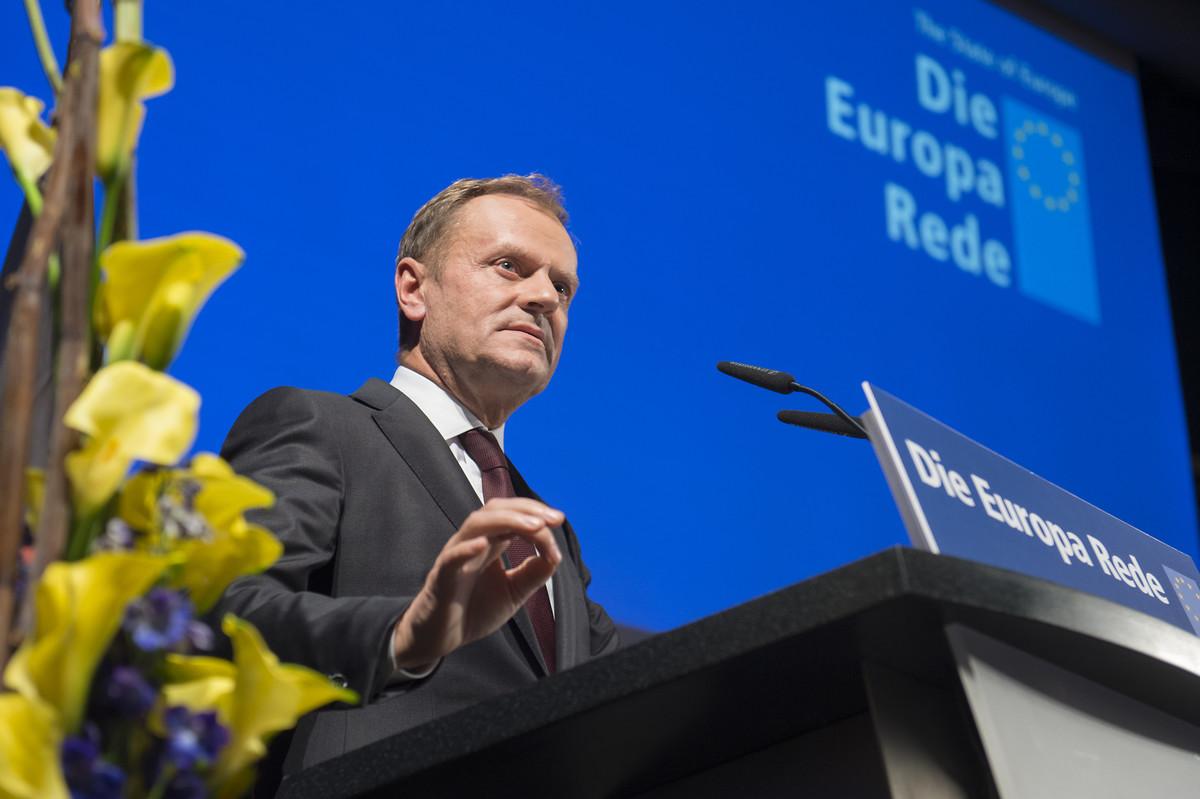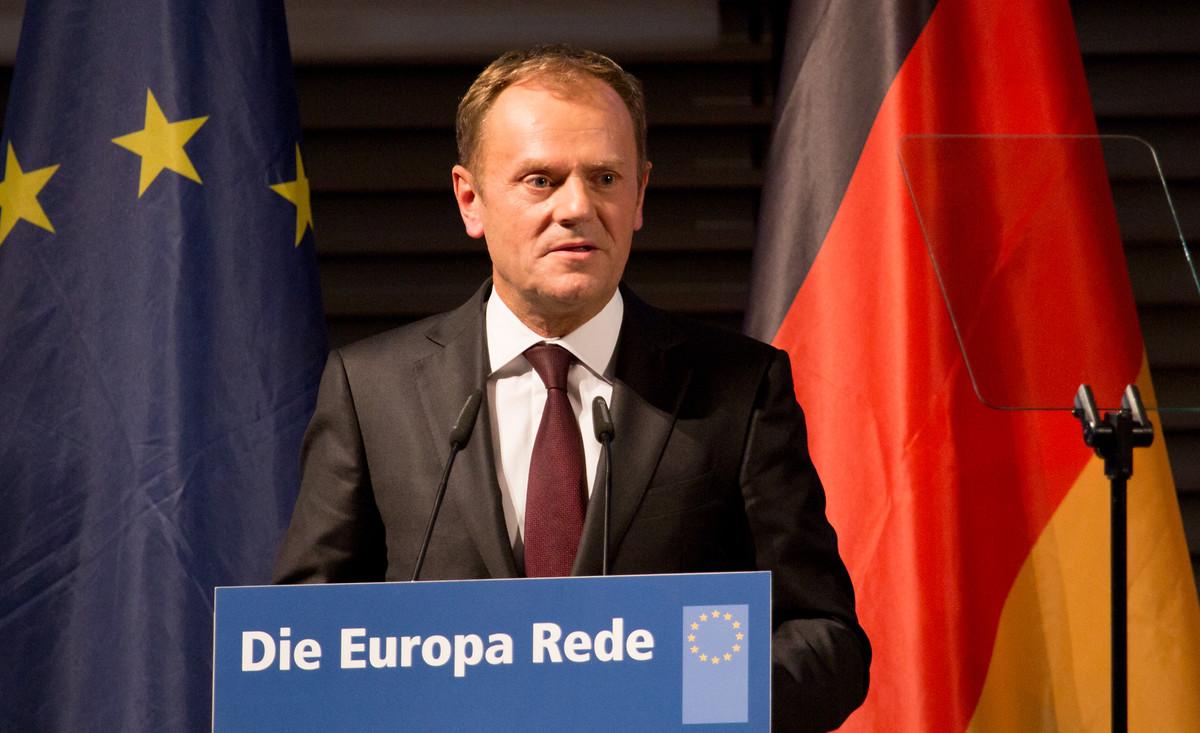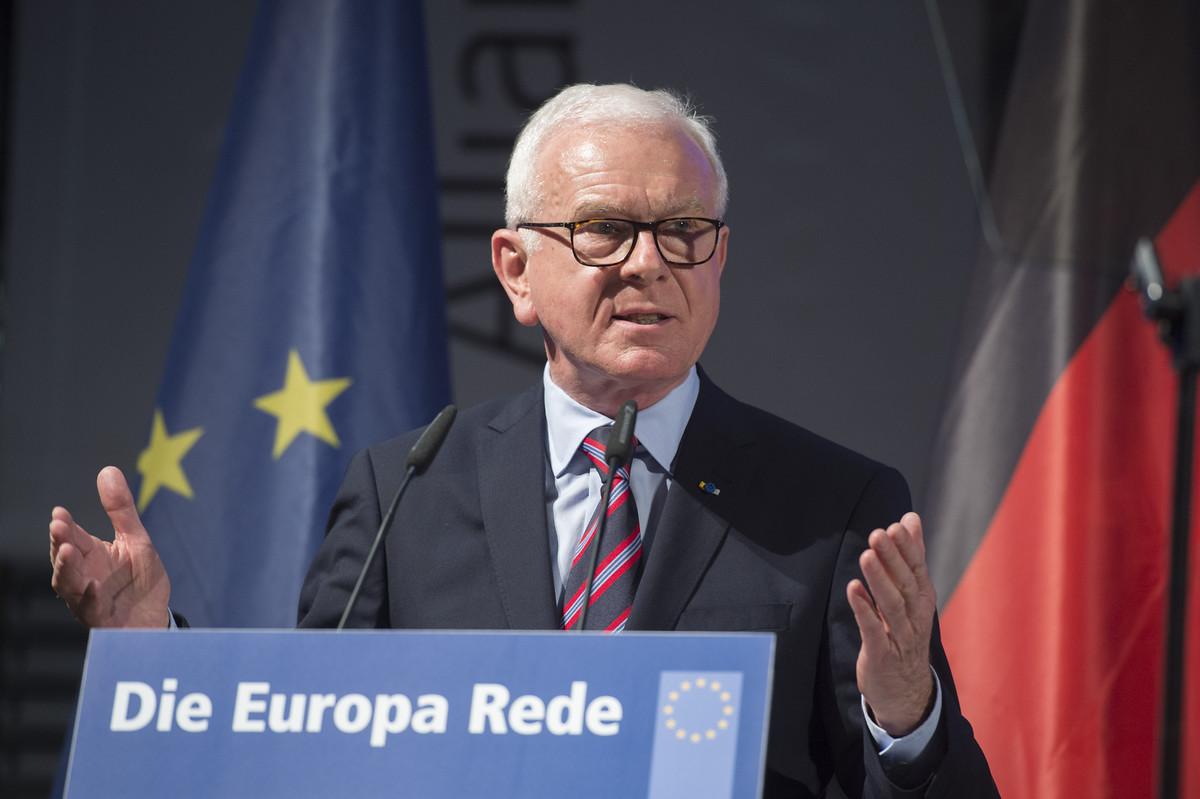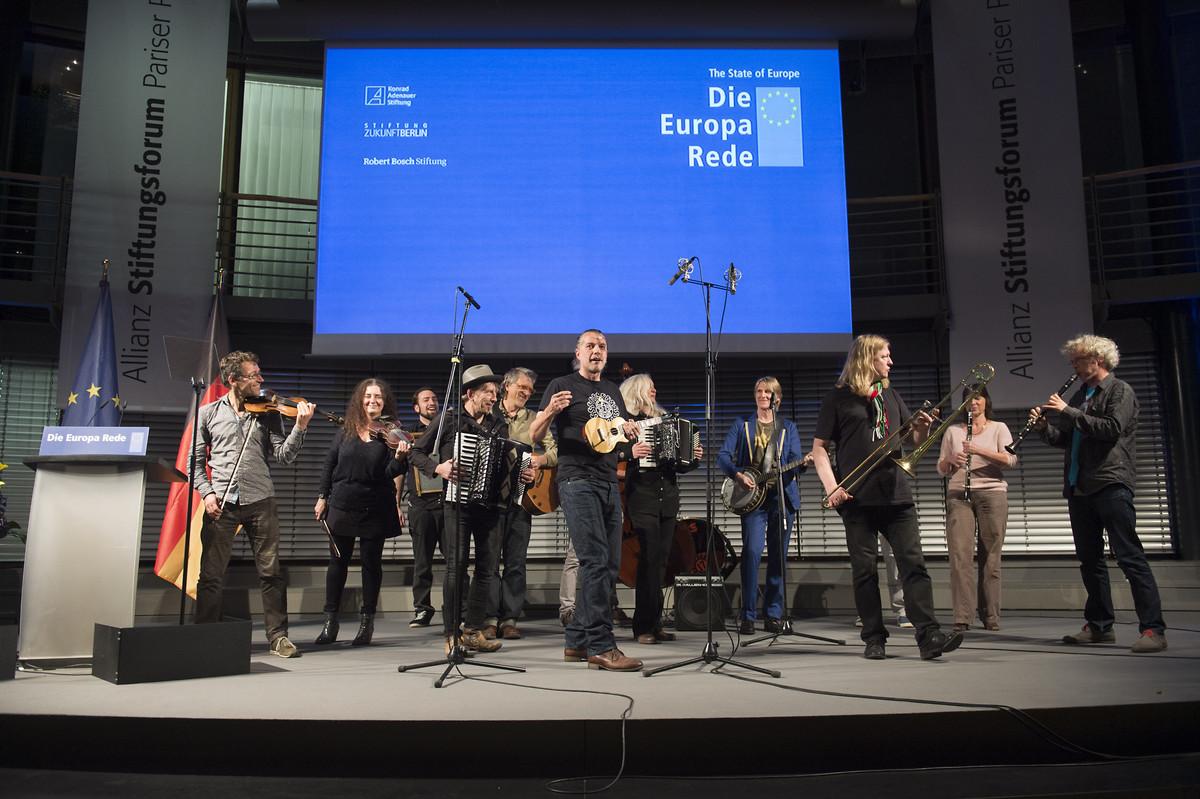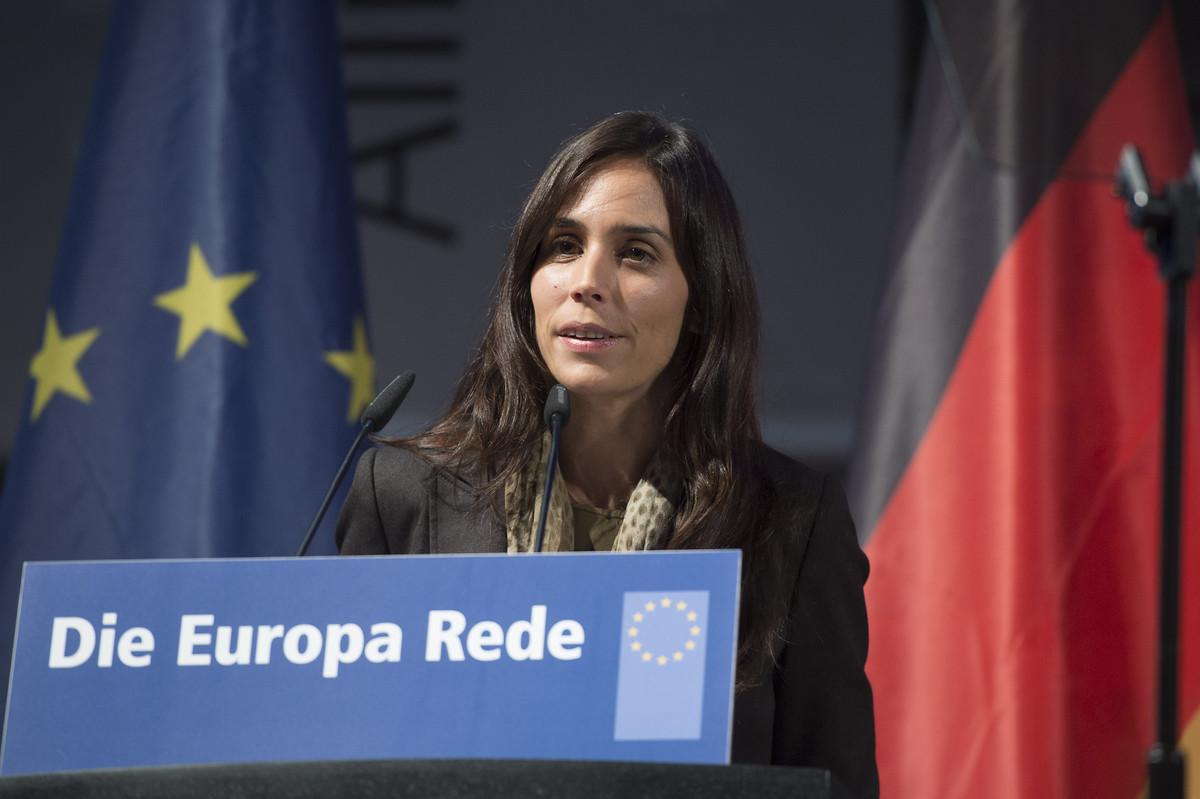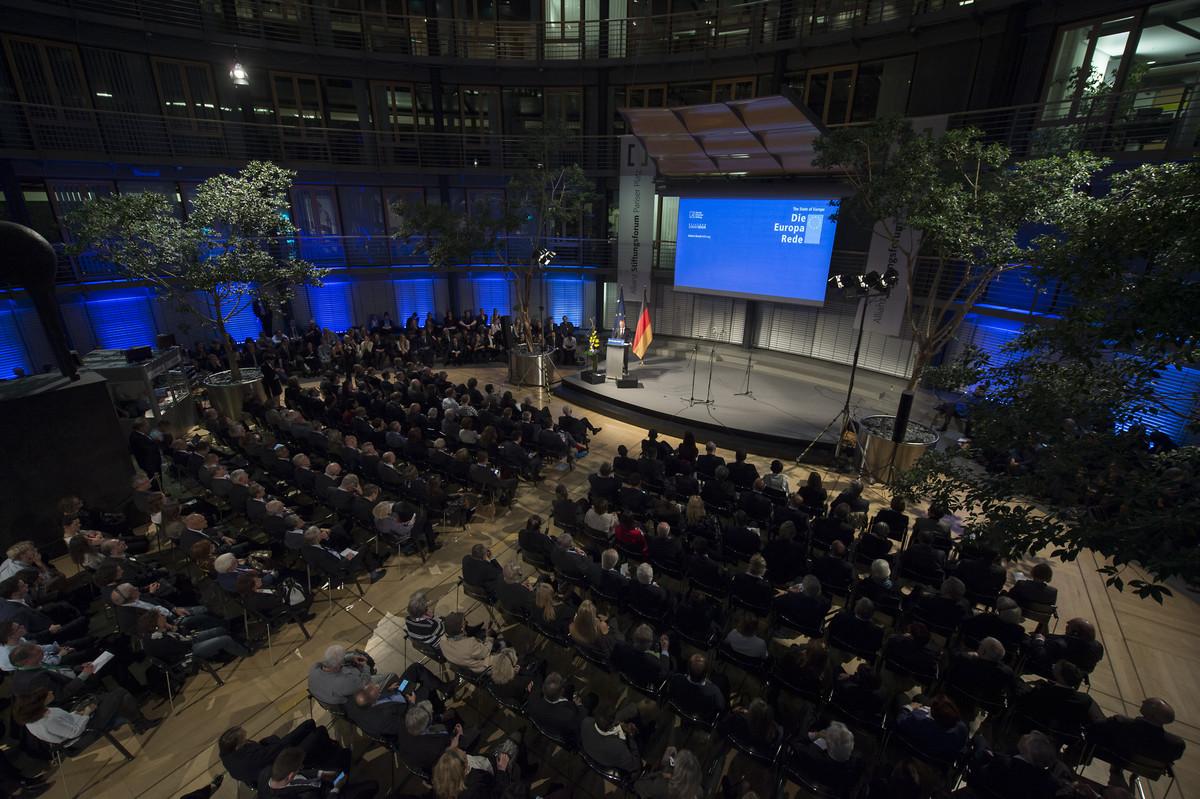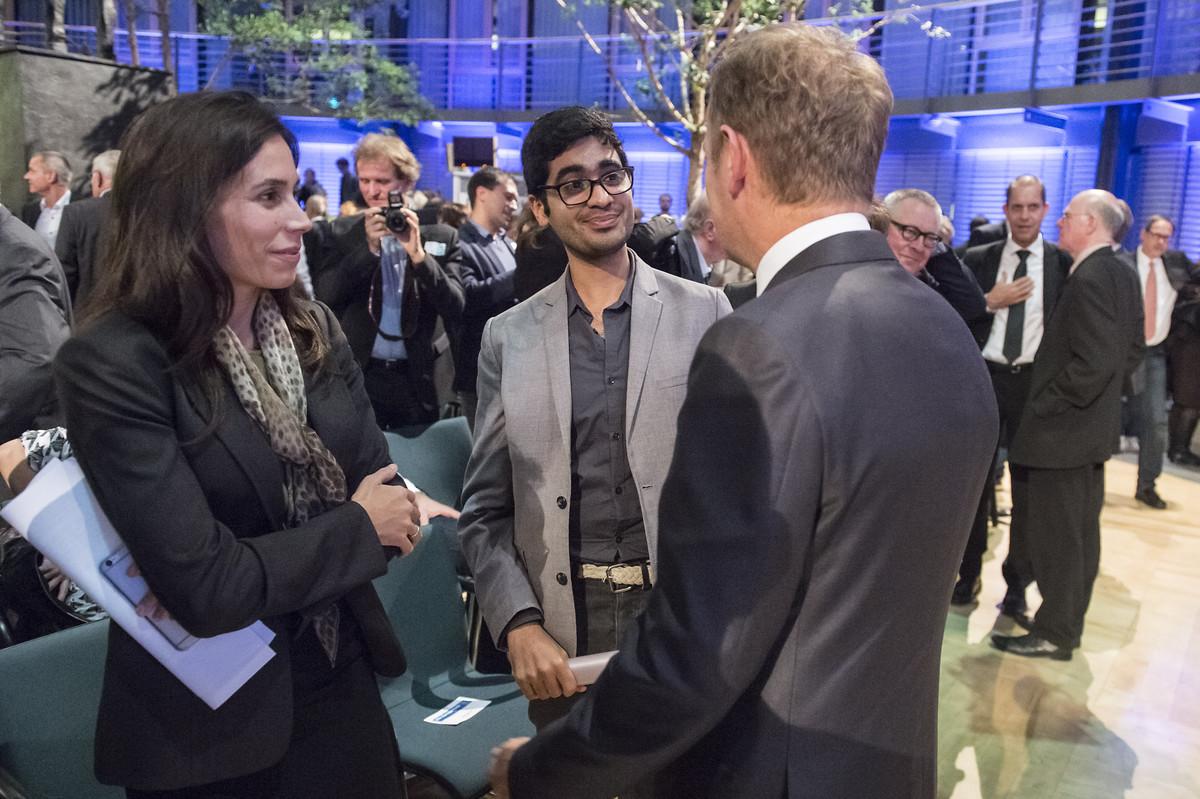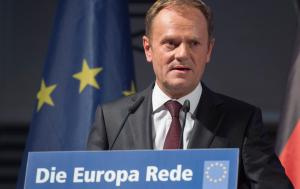Today’s Germany, a Germany of solidarity, is an example of best European traditions and therefore it should take its responsibility and lead the political community of Europeans. Referring to Kissinger, today’s Germany is no longer too big for Europe and too small for the world. No “it is just right”, Tusk said in Berlin.
In front of 650 guests, President of the European Council Donald Tusk spoke about the challenges Europe is facing today, and the challenge itself “to speak on the 9th of November in Berlin.” Remembering the Kristallnacht, the proclamation of the First Republic, the abdication of Wilhelm II, but most of all the fall of the Berlin wall, Tusk stood still by this metaphor of a “turned-down-wall”. 1989 proved that good can conquer evil. Even though Tusk, as an historian, said to be aware of the role Gorbachev played in this peaceful revolution, to him, it were the German people that “set the wheels in motion”. And whether Europe is to survive as a continent of freedom with its values built on principles of liberal democracy will depend “to a great extent on Germans” and their believe “in the creative potential of their dreams about freedom”, which proved already right once in 1989.
With Germany at steer in Europe, the community has to strengthen the transatlantic community, strengthen Europe’s external borders and strengthen the faith in liberal democracy as the essence of Europe. Germany proved in the Ukraine crisis to be capable of positive leadership, Tusk said. When discussing the migration crisis Europe should underline the importance of open borders inside Europe. “We will not save Europe without internal borders, unless we strengthen external European borders. If we want to rebuild Europe's ability to pursue its own migration policy, including relocation, we must control our external borders.” And even though Germany is not a border state of Europe, “everybody will be looking up to you”, the president said. This challenge at the same time opens a new challenge: defending and protecting liberal democracy. As more and more refugees enter Europe, this “breeds anxiety among ordinary people”, providing an opportunity for radical populists in European politics. If the populists win, the walls may rise again and “the European unity may once again become a dream.”
Before Tusk spoke his words asking Germany to lead Europe, the chairman of the Konrad Adenauer Foundation, Hans-Gert Pöttering, also said, regarding to the refugee crisis that “Europe is facing big challenges, which it can only tackle together.” Without any doubt, he said, this will be a long-term task, which is going to show us what solidarity means to all of EU’s member states. Both, Pöttering and Tusk, already pointed out that Europe is not able to accept all the people willing to come to our continent.
Die Europa-Rede, the “State of Europe” is an event organized by the Konrad-Adenauer-Stiftung, Robert Bosch Stiftung and Stiftung Zukunft Berlin. Each year on the 9th of November, one of Europe’s highest representatives will deliver a speech to present their views on Europe’s past and future. In 2010 Herman Van Rompuy, president of the European Council the “State of Europe” series, opened the yearly state of Europe event. He was followed by the President of the European Commission, José Manuel Barroso, in 2011 and by the President of the European Parliament, Martin Schulz, in 2012. In 2013 Herman Van Rompuy spoke again and last year in 2014 Martin Schulz delivered his view on Europe.
Sixth State of Europe of the Konrad-Adenauer-Stiftung
Summary of the highlights (only in German)
YouTube, Onlinekas
Topics
About this series
The Konrad-Adenauer-Stiftung, its educational institutions, centres and foreign offices, offer several thousand events on various subjects each year. We provide up to date and exclusive reports on selected conferences, events and symposia at www.kas.de. In addition to a summary of the contents, you can also find additional material such as pictures, speeches, videos or audio clips.
Order details
erscheinungsort
Berlin Deutschland




